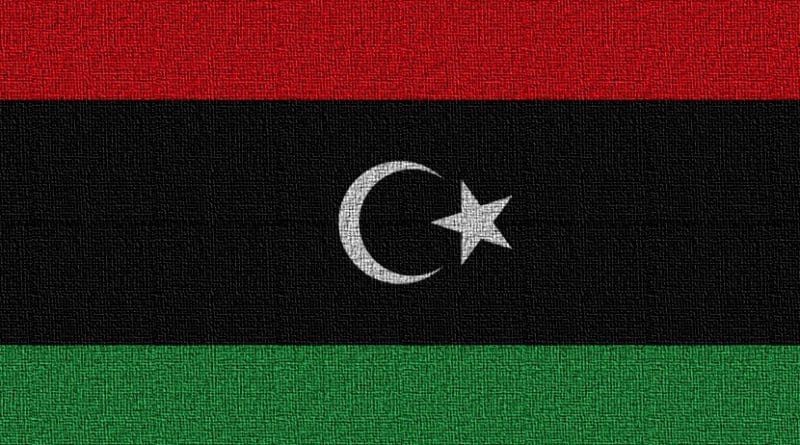Some Scenarios For Libya – OpEd
By Press TV
By Seyyed Mohyeddin Sajedi
Gaddafi’s opponents are trying to capture the capital, Tripoli, while Libya’s Army prevents any advancement towards his base, using more modern weaponry.
Libya’s dictator is faced with worse prospects everyday and his and his son’s names finding their way to the list of war criminals rules out all means of meeting halfway.
Not a day goes by without a news story pointing Gaddafi’s inclination towards resignation being broadcast through the outlets. The stories, however, are immediately rejected in Tripoli. A sort of balance has been forged between Gaddafi’s opponents and the Libyan government, which could reinforce the scenario, where the country turns into a second Somalia. In the light of Russia and China’s cooperation with the Western governments, the only solutions facing the dictator are escape, suicide or death.
What scenarios does Libya face, should Gaddafi be certain to fall?
1. The civil war scenario: Suppressive regimes advertise that chaos and violence would be the only alternative to their reign. Totalitarian regimes can not win fraud-free elections or free referendums, but can secure victory by dominating governmental organizations and through waging political violence. The balance of military power, therefore, would outweigh on the part of the side, which takes the helm.
Turning peaceful protest into armed conflict would also make for an unwelcome post-dictatorship situation.
There has been news about disagreement among the members of the National Transitional Council (NTC) — among commanders over military affairs and between the pro-Islamic and the minority secularists regarding political matters. The news are forgotten about soon, but, should the conflict be real and drag on, it could lead to dangerous consequences after victory given Libya’s tribal structure.
There are 120 tribes in Libya, at least 30 of which are of great population. Tribesmen are killed either as Gaddafi’s opponents or his supporters. The tribes have a long history of seeking revenge against each other. The revolution, however, has engendered very extensive harmony and cooperation among the tribal leaders. This could prevent the country from experiencing a stage of tribal standoff in the future.
2. The police state scenario: Some of the NTC’s military commanders, namely General Abdul Fatah Younis, Major General Suleiman Mahmoud, Lieutenant General Khalifa Belqasim Haftar and Brigadier Mohammad Najm are among the ‘The Free Officers Movement,’ who took part in the 1969 coup. They enjoy both historical and revolutionary legitimacy and are associated with several big Libyan tribes, representing them at the NTC. The current affairs could tempt some of the members of the military to wrest the power, especially should the current crisis be solved through military means not political ones.
The scenario, however, is less likely than the civil war one as four decades of rule by the members of military would prevent the recurrence of such domination. Furthermore, West would not provide gratis contribution to the opponents and Europe would not undertake to back them up given the adverse consequences of military dominance over issues like immigration and security over the several past decades.
3. The grey scenario: Libya will not transform into a free democracy, nor will it become an absolute dictatorship; and it will experience an extended transitional period. Under such a scenario, the weakness of governmental organizations and financial corruption may draw people toward a ‘just dictator.’
The Carnegie Center has published an interesting report that studies the fate of 100 governments that it considered to be in a transitional phase. 20 countries in the report moved toward democracy, five turned toward complete dictatorship, and the rest fell under the grey scenario, which meant fraudulent elections, the violation of human rights, limitations to civil and social freedoms, and the independence of the justice system from the media and parliament.
Compared to Tunisia and Egypt, civil institutions are not well experienced in Libya and the likelihood of the next Libyan government not being a good representation of democracy is very high. It will not be able to enjoy a democracy where people have experienced democracy through civil institutions and where the rights of people are considered to be a sacred.
4. The partition scenario: most international and domestic analysts point at this scenario. Some point at the Ottoman era when Libya was divided into three regions of Brega in the East, Tripoli in the west, and Fezzan in the south. Even if Brega is freed from Gaddafi’s control, Tripoli will remain in his hands and the Fezzan region will not be able to overcome Gaddafi. Most of Libya’s population is concentrated in the northwest and northeast of the country.
Of course, the division of Libya has occurred at least eight times since the country gained independence in 1951, and the last time was in the year 2007 when the country was divided into 22 provinces. Gaddafi isn’t in complete control of the west either. He has already lost Misrata and Zentan and the revolutionaries are advancing toward Zawiya and Zlitan.
The east of the country has its own complications. Holding on to Ajdabia and gaining full control of Brega, Ras Lanuf, West Jebel, has great importance for the transitional council. Ras Lanuf is the center of water distribution for eastern Libya and especially Benghazi. Despite the fact that most of the oil supplies are located in the east, since the refineries and oil infrastructure is located in the west of the country the oil deposits in the east are meaningless and the economic turmoil is merely given western Libya the chance to strengthen its grip on the oil resources.
The fate of Libya’s revolution depends on the outcome of the uprisings in the rest of the region, especially in Egypt and Tunisia. These revolutions will help Libya shape its future government and reduces the odds of having a grey scenario in the country. The division of Libya will have a very negative impact on the nation and the economic situation of the rest of the region.

